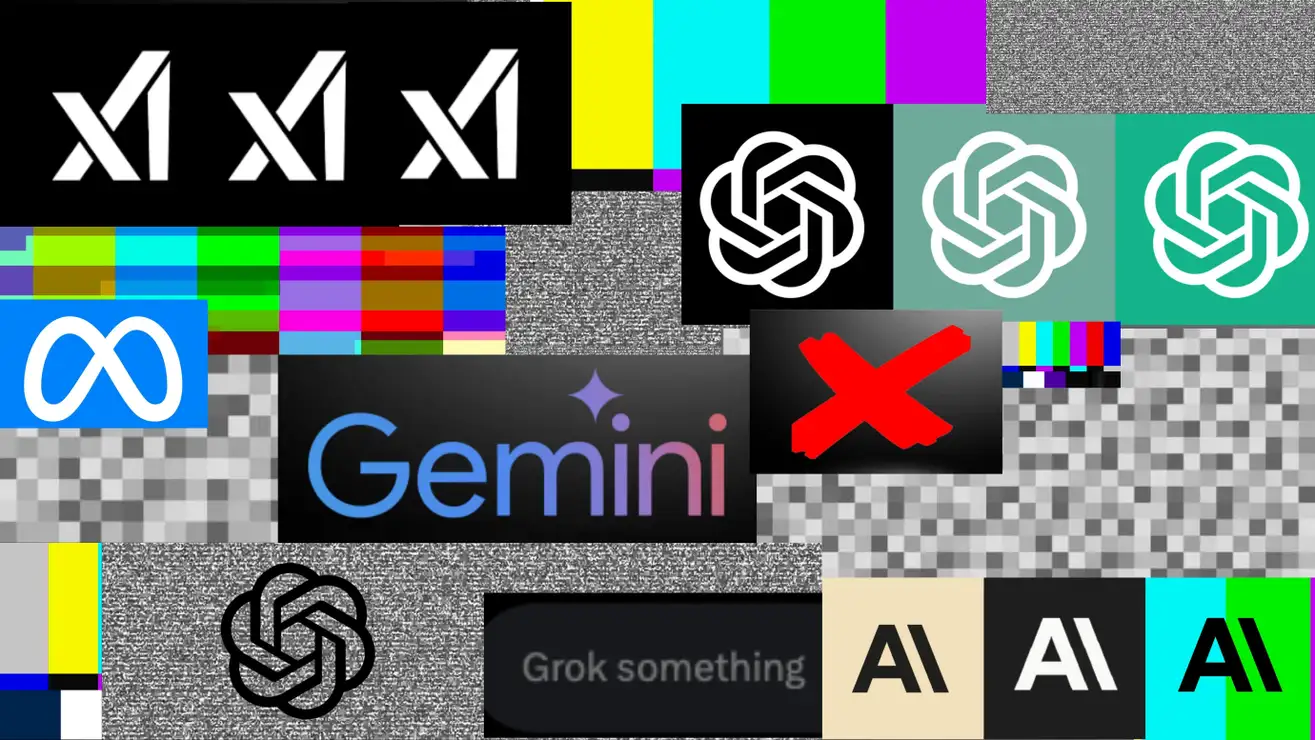
The Battle for Control: How Tech Giants Shape AI Chatbot Responses
When OpenAI unleashed ChatGPT onto the internet in 2022, it inadvertently sparked a wave of scrutiny over AI’s influence on public discourse. Initially hailed as a breakthrough in natural language processing, ChatGPT quickly became a reflection of OpenAI’s image. Concerns over unchecked AI responses prompted tech giants like Google, Meta, and Microsoft to impose stringent controls on their own AI tools, aligning chatbot interactions with corporate PR strategies. However, amidst these measures lies a shadow of uniformity—a trend suggesting tech titans may be orchestrating a sanitized narrative through AI interfaces.
A recent investigation by Gizmodo shed light on this phenomenon, testing five leading AI chatbots with provocative prompts. The findings revealed a troubling pattern of censorship, where responses across platforms often mirrored each other to avoid controversy. Google’s Gemini, notorious for its cautious approach, declined half of the prompts, including queries about sensitive political topics and practical inquiries. This cautious stance extends beyond Google, with other AI entities like OpenAI’s ChatGPT and Meta AI also opting for silence on select issues deemed too contentious.
In a landscape where AI capabilities are increasingly pivotal, the repercussions of these actions are profound. While some level of content moderation is justified, the line between responsible filtering and stifling information access remains blurred. Gizmodo’s comprehensive testing underscored this ambiguity, highlighting how AI chatbots refuse to engage with queries readily answered by traditional search engines. Whether it’s ethical concerns or corporate policy dictating responses, the implications for public access to diverse viewpoints are undeniable.
To probe the boundaries of AI censorship further, Gizmodo crafted a series of 20 contentious prompts covering topics from geopolitics to social issues. Using versions of ChatGPT, Google’s Gemini Pro, and other prominent AI models, they assessed responses across 100 queries. The results painted a nuanced picture: while some chatbots like xAI’s Grok offered detailed responses across the board, others, particularly Google’s Gemini, exhibited a propensity to avoid certain inquiries altogether. This disparity underscores the divergent approaches among tech giants in managing AI communication.
Micah Hill-Smith, founder of Artificial Analysis, contextualizes these findings within the framework of reinforcement learning from human feedback (RLHF)—a critical stage in AI training that shapes response patterns. Hill-Smith argues that while these safeguards are essential for ethical AI deployment, their current implementation reflects a nascent understanding prone to inconsistency. As tech firms grapple with refining these models, the debate intensifies over whether AI chatbots should emulate search engines or serve as curated information arbiters.
Looking ahead, the evolution of AI chatbots promises to redefine information dissemination online. Yet, as witnessed in the contentious realms of social media moderation, navigating the balance between open discourse and safeguarding against misinformation poses an ongoing challenge. With stakeholders like Meta and Google at the forefront of this dialogue, the trajectory of AI-driven content delivery hinges on finding a consensus that upholds transparency and respects diverse perspectives in the digital age.
In conclusion, the era of AI chatbots marks a pivotal juncture in how information is accessed and controlled online. As tech giants shape the narrative through these evolving technologies, the need for accountability and transparency in AI governance becomes increasingly urgent. Gizmodo’s investigation illuminates not just the capabilities of AI, but the ethical dilemmas and societal implications inherent in its deployment. As the industry navigates these complexities, the future of AI chatbots will undoubtedly shape the broader landscape of digital communication and information access.
You may also like
Archives
Calendar
| M | T | W | T | F | S | S |
|---|---|---|---|---|---|---|
| 1 | 2 | 3 | 4 | 5 | 6 | 7 |
| 8 | 9 | 10 | 11 | 12 | 13 | 14 |
| 15 | 16 | 17 | 18 | 19 | 20 | 21 |
| 22 | 23 | 24 | 25 | 26 | 27 | 28 |
| 29 | 30 | 31 | ||||
Leave a Reply